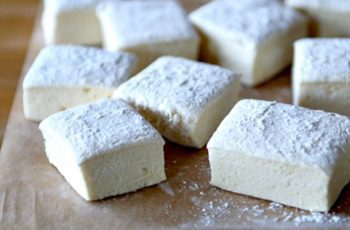Chronic inflammation is detrimental to health and increases the risk of various diseases such as heart disease, diabetes, arthritis, and obesity. By incorporating the right foods into your diet, you can reduce inflammation, improve overall health, and lower the risk of chronic diseases.
Incredible Anti Inflammatory Foods for You
- Choose a variety of fruits and vegetables with anti-inflammatory properties.
- Incorporate omega-3 fatty acids from fish, nuts, and seeds.
- Include herbs and spices like turmeric, ginger, and garlic in your meals.
- Opt for whole grains instead of refined grains.
- Limit processed foods, sugary drinks, and unhealthy fats.
The Link Between Inflammation and Chronic Diseases
Chronic inflammation is a key factor in the development of various diseases, including atherosclerosis, dementia, arthritis, diabetes, and autoimmune diseases. In fact, inflammatory diseases are the leading cause of disability and death worldwide. Understanding the connection between inflammation and these chronic conditions highlights the critical role of addressing inflammation through dietary choices.
Chronic inflammation can have a profound impact on our overall health and well-being. It is a destructive process that triggers and perpetuates various disease pathways in the body. By adopting an anti-inflammatory diet and incorporating specific foods into our daily meals, we can help reduce and control chronic inflammation, ultimately lowering the risk of developing these debilitating conditions.
Inflammatory diseases, such as cardiovascular diseases, diabetes, and arthritis, are often characterized by persistent inflammation in one or more areas of the body. This ongoing inflammation can lead to tissue damage, impaired cellular function, and an increased risk of chronic diseases. It is important to recognize the role of inflammation in disease development and take proactive measures to combat it.
The relationship between inflammation and chronic diseases is complex, but research has consistently shown that dietary choices can significantly impact inflammation levels in the body. Certain foods have anti-inflammatory properties and can help modulate the body’s inflammatory response. These foods provide essential nutrients, antioxidants, and bioactive compounds that help combat chronic inflammation and its detrimental effects.
As we continue to delve deeper into the intricate mechanisms of inflammation and how it contributes to chronic diseases, it becomes increasingly evident that our lifestyle choices, particularly our diet, play a crucial role. By adopting an anti-inflammatory eating pattern and incorporating key foods into our meals, we can harness the power of nutrition to promote better health, reduce the risk of chronic diseases, and enhance our overall well-being.
The Impact of Inflammation on Common Conditions
Inflammation plays a significant role in the development and progression of various conditions like osteoporosis, diabetes, cardiovascular diseases, arthritis, allergies, chronic obstructive pulmonary disease, and overweight/obesity. These conditions affect millions of people worldwide and are closely connected to chronic inflammation.
Chronic inflammation can lead to bone loss and weaken the bones, increasing the risk of osteoporosis. It can also contribute to insulin resistance and high blood sugar levels, leading to the development and progression of diabetes.
Inflammation damages the walls of blood vessels, promoting the buildup of plaque and increasing the risk of cardiovascular diseases such as heart attacks and strokes. It is also a key player in the development and progression of various forms of arthritis, causing joint pain, stiffness, and swelling.
Allergies are the result of an exaggerated immune response that triggers inflammation. Chronic inflammation can exacerbate allergy symptoms and make them more severe.
Chronic obstructive pulmonary disease (COPD) is characterized by inflammation and damage to the airways and lungs. Inflammation in the respiratory system worsens COPD symptoms such as shortness of breath and coughing.
Lastly, chronic inflammation is closely linked to overweight and obesity. Adipose tissue produces pro-inflammatory molecules that can lead to a chronic state of inflammation in the body, contributing to the development and progression of obesity-related health complications.

By understanding the impact of inflammation on these common conditions, we can see the importance of incorporating anti-inflammatory foods into our diet to reduce inflammation, improve overall health, and lower the risk of chronic diseases.
The Power of Anti-Inflammatory Foods
Making the right food choices can have a significant impact on reducing inflammation and improving overall health. The Standard American Diet, known for its high intake of saturated fats and processed foods, is notorious for promoting inflammation in the body. However, by incorporating alkaline foods such as fruits and vegetables into your diet, you can help combat inflammation.
Alkaline foods are rich in essential nutrients and have been shown to have anti-inflammatory properties. Fruits and vegetables, in particular, are packed with antioxidants and phytochemicals that can help reduce inflammation and protect against chronic diseases.
When it comes to specific anti-inflammatory foods, there are several standout options that offer impressive health benefits. Avocados, for example, are not only delicious but also packed with monounsaturated fats and antioxidants that can help reduce inflammation. Black cherries are another excellent choice, as they are loaded with anthocyanins, which have been shown to have anti-inflammatory effects.
Fish, such as salmon and tuna, is rich in omega-3 fatty acids, which are known for their anti-inflammatory properties. Garlic, a staple in many cuisines, contains sulfur compounds that have been shown to reduce inflammation in the body. And let’s not forget about olive oil, which is not only a healthy source of fat but also contains oleocanthal, a compound with powerful anti-inflammatory effects.
Incorporating these anti-inflammatory foods into your diet can promote overall health and help prevent chronic diseases associated with inflammation. By making conscious food choices and prioritizing the consumption of alkaline fruits and vegetables, avocados, black cherries, fish, garlic, and olive oil, you can take proactive steps towards reducing inflammation and optimizing your well-being.
Follow me to the next section for a comprehensive list of top anti-inflammatory foods to include in your diet.
Top Anti-Inflammatory Foods to Include in Your Diet
Incorporating a variety of anti-inflammatory foods into your diet can have significant benefits for your health. These foods contain powerful compounds that help reduce inflammation in the body and promote overall well-being. By including these nutrient-rich options in your meals, you can support your body’s natural healing processes and lower the risk of chronic diseases associated with inflammation.
Here are some top choices for anti-inflammatory foods:
- Dark leafy greens: Spinach, kale, and Swiss chard are packed with antioxidants and vitamins that combat inflammation.
- Avocados: Rich in healthy fats and antioxidants, avocados help reduce inflammation and support heart health.
- Tomatoes: Tomatoes are an excellent source of lycopene, a powerful antioxidant that fights inflammation.
- Carrots: Loaded with beta-carotene and vitamin C, carrots have anti-inflammatory properties and promote healthy skin.
- Sweet potatoes: These delicious root vegetables are high in antioxidants and provide anti-inflammatory benefits.
- The cruciferous family: Broccoli, cauliflower, and Brussels sprouts are rich in antioxidants and help fight inflammation.
- Asparagus: This vegetable is packed with anti-inflammatory phytonutrients and contains high levels of vitamins A, C, and E.
- The allium family: Onions, garlic, and leeks contain sulfur compounds that have anti-inflammatory and immune-boosting effects.
- Berries: Blueberries, strawberries, and raspberries are rich in antioxidants that help reduce inflammation.
- Pomegranates: Packed with antioxidants and flavonoids, pomegranates have potent anti-inflammatory properties.
- Fresh herbs: Include herbs like turmeric, ginger, and rosemary in your diet for their anti-inflammatory benefits.
- Fermented varieties: Foods like yogurt, sauerkraut, and kimchi promote a healthy gut and have anti-inflammatory effects.
- Fish: Fatty fish like salmon, tuna, and sardines are high in omega-3 fatty acids, which have potent anti-inflammatory properties.
- Whole oats and quinoa: These whole grains are rich in fiber and have anti-inflammatory effects.
- Beans/legumes/lentils: These plant-based protein sources are excellent for reducing inflammation and promoting overall health.
- Artichoke hearts: Artichokes contain antioxidants that help combat inflammation and support liver health.
- Tea: Green tea and herbal teas like chamomile and ginger have anti-inflammatory properties and improve overall health.
- Red wine: In moderation, red wine’s resveratrol content offers anti-inflammatory benefits.
- Cocoa powder: Cocoa is packed with antioxidants and contains flavanols that have anti-inflammatory effects.
- Flax/chia/hemp seeds: Rich in omega-3 fatty acids and fiber, these seeds help reduce inflammation.
- Extra virgin olive oil: This heart-healthy oil is rich in antioxidants and has anti-inflammatory properties.
- Nuts/seeds: Almonds, walnuts, flaxseeds, and chia seeds are anti-inflammatory and can support heart health.
- Dark chocolate: High-quality dark chocolate with a minimum of 70% cocoa offers anti-inflammatory benefits.
By including a variety of these anti-inflammatory foods in your diet, you can support your body’s natural defenses, reduce inflammation, and enjoy better overall health.

Stay tuned for the next section where we’ll discuss Dr. Ann’s List of Top Anti-Inflammatory Foods and discover even more delicious options for reducing inflammation!
Dr. Ann’s List of Top Anti Inflammatory Foods
Incorporating anti-inflammatory foods into your diet is an excellent way to support your overall health and well-being. Dr. Ann has compiled a comprehensive list of top anti-inflammatory foods that can provide numerous health benefits. Let’s explore some of these nutritious options:
Dark Lettuce Greens
Dark lettuce greens such as spinach, kale, and arugula are packed with vitamins, minerals, and antioxidants. They provide a great base for salads and can also be used in smoothies or as a side dish.
Avocados
Avocados are a rich source of healthy fats and contain anti-inflammatory properties. Enjoy them in salads, sandwiches, or as a delicious guacamole dip.
Tomatoes
Tomatoes are high in lycopene, a powerful antioxidant known for its anti-inflammatory effects. Include them in salads, sandwiches, or as a key ingredient in sauces.
Carrots
Carrots are packed with beta-carotene, which is converted to vitamin A in the body and has anti-inflammatory benefits. Enjoy them raw as a snack, or roast them for a flavorful side dish.
Sweet Potatoes
Sweet potatoes are a great source of complex carbohydrates and contain anti-inflammatory properties. Bake them, mash them, or enjoy them in soups and stews.
Winter Squash
Winter squash varieties like butternut squash and acorn squash are rich in antioxidants and fiber. Roast them for a delicious side dish or add them to casseroles.
Cruciferous Family
Cruciferous vegetables such as broccoli, cauliflower, and Brussels sprouts have anti-inflammatory and detoxifying properties. Steam, sauté, or roast them for a nutritious side dish.
Asparagus
Asparagus is a nutrient-dense vegetable that is known for its anti-inflammatory benefits. Enjoy it grilled, roasted, or added to salads and stir-fries.
Berries
Berries, such as blueberries, strawberries, and raspberries, are packed with antioxidants and have anti-inflammatory effects. Enjoy them as a snack, in smoothies, or added to oatmeal or yogurt.
Pomegranates
Pomegranates are rich in antioxidants and have been shown to have anti-inflammatory properties. Enjoy them as a juice, in salads, or as a topping for desserts.
Citrus Fruits
Citrus fruits such as oranges, lemons, and grapefruits are high in vitamin C and have anti-inflammatory effects. Enjoy them as a refreshing snack or incorporate them into salads and dressings.
Cantaloupes
Cantaloupes are a hydrating fruit that is rich in antioxidants and has anti-inflammatory benefits. Enjoy them as a refreshing snack or add them to fruit salads and smoothies.
Mangoes
Mangoes are a sweet and tropical fruit that provide anti-inflammatory properties. Enjoy them as a snack, in smoothies, or added to salads and salsas.
Apples
Apples are packed with fiber and antioxidants, including quercetin, which has anti-inflammatory properties. Enjoy them as a snack, in salads, or use them in baking.
Grapes
Grapes provide resveratrol, a compound with anti-inflammatory effects. Enjoy them as a snack or freeze them for a refreshing treat.
Cherries
Cherries are known for their anti-inflammatory properties and are rich in antioxidants. Enjoy them fresh, in smoothies, or as a topping for desserts.
Plums
Plums contain antioxidants and have anti-inflammatory benefits. Enjoy them fresh or incorporate them into jams, jellies, and desserts.
Pears
Pears are a nutritious fruit that is high in fiber and contains anti-inflammatory properties. Enjoy them fresh or use them in baked goods and salads.
Peaches
Peaches are a delicious fruit that contains antioxidants and has anti-inflammatory effects. Enjoy them fresh, grilled, or added to smoothies and salads.
Fresh Herbs
Herbs like basil, parsley, and cilantro provide anti-inflammatory compounds and can add flavor to your dishes. Use them as a garnish, in salads, or in homemade dressings and sauces.
Sprouts
Sprouts, such as broccoli sprouts and alfalfa sprouts, contain concentrated amounts of vitamins, minerals, and antioxidants. Enjoy them in salads, sandwiches, or as a topping for soups.
Salsa
Salsa is a flavorful condiment that often contains anti-inflammatory ingredients such as tomatoes, onions, and peppers. Enjoy it with chips, as a topping for grilled meats or vegetables, or as a dip for raw veggies.
Guacamole
Guacamole, made from avocados and other flavorful ingredients, provides healthy fats and anti-inflammatory compounds. Enjoy it as a dip or as a spread for sandwiches and wraps.
Tzatziki Yogurt Sauce
Tzatziki yogurt sauce, made with Greek yogurt and cucumber, is not only delicious but also provides probiotics and anti-inflammatory properties. Use it as a dip, a spread, or a topping for grilled meats and vegetables.
Fermented Varieties
Fermented foods like sauerkraut, kimchi, and tempeh contain beneficial probiotics and provide anti-inflammatory effects. Enjoy them as a side dish or add them to salads and wraps.
Organic Plain Soy Milk
Organic plain soy milk is a plant-based alternative to dairy milk that provides protein and contains anti-inflammatory compounds. Use it in smoothies, cereals, or as a base for creamy soups.
Whole Soy Foods
Whole soy foods such as tofu, edamame, and tempeh provide plant-based protein and have anti-inflammatory properties. Incorporate them into stir-fries, salads, or use them as a meat substitute in your favorite dishes.
Fish
Fatty fish like salmon, sardines, and mackerel are rich in omega-3 fatty acids, which have strong anti-inflammatory effects. Enjoy grilled or baked fish as a main course or add it to salads and wraps.
Whole Oats
Whole oats are a great source of fiber and contain anti-inflammatory properties. Enjoy them as oatmeal, granola, or use them as a coating for baked goods.
Quinoa
Quinoa is a complete protein that provides essential amino acids and has anti-inflammatory benefits. Use it as a base for salads, stir-fries, or as a side dish.
Wheat Germ
Wheat germ is a nutrient-dense part of wheat that provides fiber, vitamins, and minerals. Sprinkle it over cereal, yogurt, or add it to baked goods for an extra nutritional boost.
Whole Grain Cereals
Whole grain cereals like brown rice, barley, and farro are rich in fiber and contain anti-inflammatory properties. Enjoy them as a side dish, in soups, or as a base for grain bowls.
Beans/Legumes/Lentils
Beans, legumes, and lentils are high in fiber, plant-based protein, and anti-inflammatory compounds. Incorporate them into soups, stews, salads, or use them as a filling for wraps and burritos.
Artichoke Hearts
Artichoke hearts provide prebiotics that nourish the beneficial bacteria in your gut and have anti-inflammatory effects. Enjoy them as a topping for pizzas, added to pasta dishes, or in dips and salads.
Roasted Red Peppers
Roasted red peppers are rich in antioxidants and provide a sweet and smoky flavor. Use them in sandwiches, salads, pasta dishes, or as a topping for grilled meats and vegetables.
Canned Pumpkin
Canned pumpkin is a versatile ingredient that is rich in fiber and antioxidants. Use it in soups, stews, baked goods, or as a base for creamy sauces and dips.
Tea
Tea, especially green tea and herbal teas, provides antioxidants and has anti-inflammatory properties. Enjoy a warm cup of tea as a soothing beverage or iced tea on a hot day.
Red Wine
Red wine in moderation provides antioxidants and contains resveratrol, which has anti-inflammatory effects. Enjoy a glass of red wine as part of a balanced diet.
Pure Cocoa Powder
Pure cocoa powder is rich in flavonoids, which have anti-inflammatory benefits. Use it in smoothies, baked goods, or sprinkle it over yogurt and oatmeal.
Flax/Chia/Hemp Seeds
Flax, chia, and hemp seeds are excellent sources of omega-3 fatty acids and have anti-inflammatory properties. Add them to smoothies, oatmeal, or sprinkle them over salads and roasted vegetables.
Extra Virgin Olive Oil
Extra virgin olive oil is a healthy fat that provides antioxidants and has anti-inflammatory effects. Use it in salad dressings, marinades, or as a finishing oil for cooked dishes.
Sesame Oil
Sesame oil is a flavorful oil that contains antioxidants and has anti-inflammatory benefits. Use it in stir-fries, dressings, or as a finishing touch to Asian-inspired dishes.
Nuts/Seeds
Nuts and seeds, such as almonds, walnuts, and sunflower seeds, provide healthy fats, fiber, and anti-inflammatory compounds. Enjoy them as a snack, add them to salads or baked goods, or use them as a coating for proteins.
Dark Chocolate
Dark chocolate with a high cocoa content provides antioxidants and has anti-inflammatory effects. Enjoy a small piece of dark chocolate as a treat or use it in baked goods.
By incorporating these top anti-inflammatory foods into your diet, you can support your overall health and well-being. Remember to enjoy them as part of a diverse and balanced diet for optimal benefits.
The Importance of Anti Inflammatory Foods for Managing Chronic Inflammation
Consuming anti-inflammatory foods is crucial for managing chronic inflammation. These foods contain specific compounds that help reduce inflammation and promote overall health. Incorporating a diverse and healthy diet, similar to the Mediterranean eating pattern, can have significant benefits in managing inflammation.
A Mediterranean-style diet emphasizes the consumption of fruits, vegetables, nuts, whole grains, fish, and healthy oils. These foods are rich in antioxidants, vitamins, minerals, and omega-3 fatty acids, which have been shown to possess anti-inflammatory effects. They can help reduce inflammation markers in the body and support a healthy immune system.
When incorporating anti-inflammatory foods into your diet, it is important to practice portion control. While these foods offer numerous health benefits, overconsumption can still lead to weight gain and other health issues. Therefore, it’s essential to maintain a balanced intake and listen to your body’s hunger and fullness cues.
Additionally, it is equally important to be aware of and avoid foods that can cause inflammation. Refined carbohydrates, fried foods, sugar-sweetened beverages, red meat, processed meats, and unhealthy fats like margarine are known to contribute to inflammation in the body. By minimizing or eliminating these foods from your diet, you can further manage chronic inflammation.
By prioritizing anti-inflammatory foods and making mindful dietary choices, you can effectively manage chronic inflammation and promote overall health and well-being.
Conclusion
Incorporating an anti-inflammatory diet into your daily routine is a powerful way to support your immune health, prevent chronic diseases, and take a holistic approach to your overall well-being. By making conscious food choices and embracing a diet rich in anti-inflammatory ingredients, you can improve your health and enhance your chances of living a long and healthy life.
Chronic inflammation is a common factor in many diseases, including heart disease, diabetes, arthritis, and obesity. By reducing inflammation through your diet, you can lower the risk of these chronic diseases and improve your immune system. The importance of anti-inflammatory foods cannot be overlooked when it comes to managing chronic inflammation.
Embracing an anti-inflammatory diet means incorporating foods such as dark leafy greens, avocados, berries, fish, nuts, and olive oil into your meals. These foods are packed with nutrients and compounds that have anti-inflammatory effects, helping to reduce inflammation and promote overall health. In addition, it is essential to avoid or limit foods that cause inflammation, such as processed meats and sugar-sweetened beverages.
By prioritizing an anti-inflammatory diet, you are taking a proactive approach to your health and well-being. So start making those conscious food choices today and embark on a journey towards a long and healthy life.
FAQ
What are some anti-inflammatory foods?
Some anti-inflammatory foods include dark leafy greens, avocados, tomatoes, carrots, sweet potatoes, cruciferous vegetables, berries, fish, whole grains, beans, nuts, and dark chocolate.
How can anti-inflammatory foods improve my health?
Anti-inflammatory foods contain compounds that reduce inflammation in the body, which can lower the risk of chronic diseases, improve immune health, and promote overall well-being.
What is the link between inflammation and chronic diseases?
Chronic inflammation is a contributing factor in diseases such as heart disease, diabetes, arthritis, and obesity. By reducing inflammation through dietary choices, you can lower the risk of these conditions.
Can anti-inflammatory foods help manage common conditions?
Yes, incorporating anti-inflammatory foods into your diet can help manage conditions like osteoporosis, diabetes, cardiovascular diseases, arthritis, allergies, chronic obstructive pulmonary disease, and overweight/obesity.
What should I avoid in my diet to reduce inflammation?
It is important to limit or avoid foods that cause inflammation, such as refined carbohydrates, fried foods, sugar-sweetened beverages, red meat, processed meats, and unhealthy fats like margarine.
What are some examples of anti-inflammatory foods according to Dr. Ann?
According to Dr. Ann, some examples of anti-inflammatory foods include dark lettuce greens, avocados, tomatoes, carrots, sweet potatoes, winter squash, berries, citrus fruits, fresh herbs, fermented foods, fish, whole oats, quinoa, beans, artichoke hearts, tea, red wine, cocoa powder, flax/chia/hemp seeds, extra virgin olive oil, nuts, and dark chocolate.




